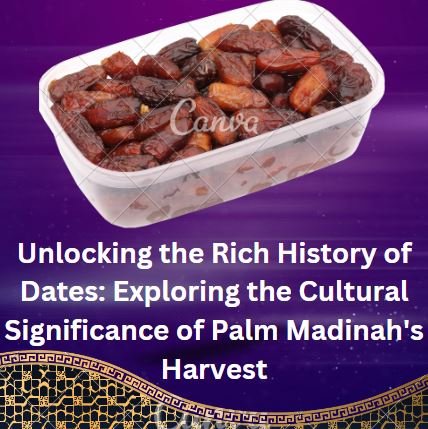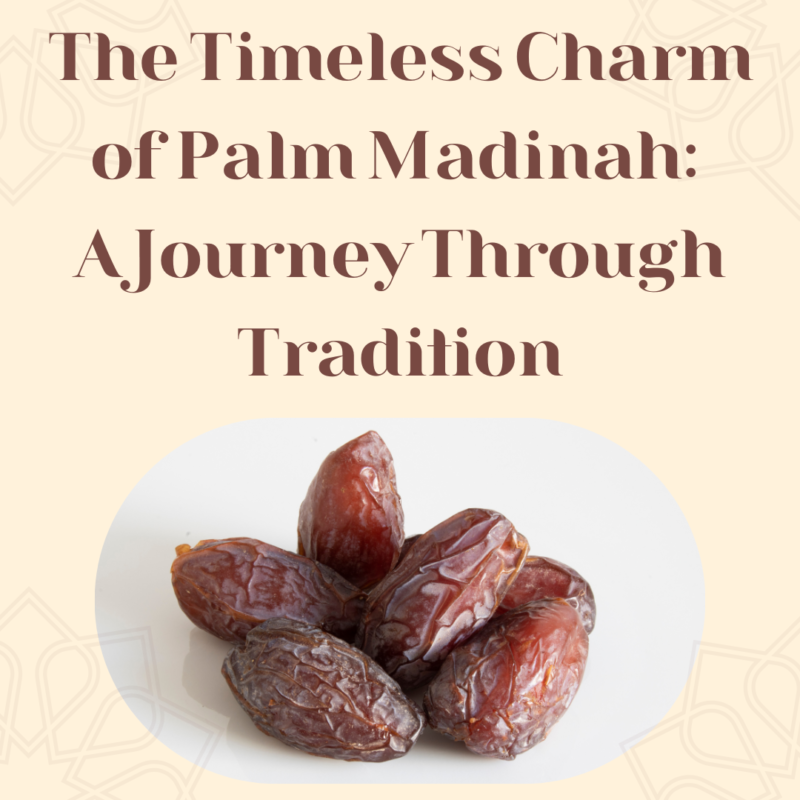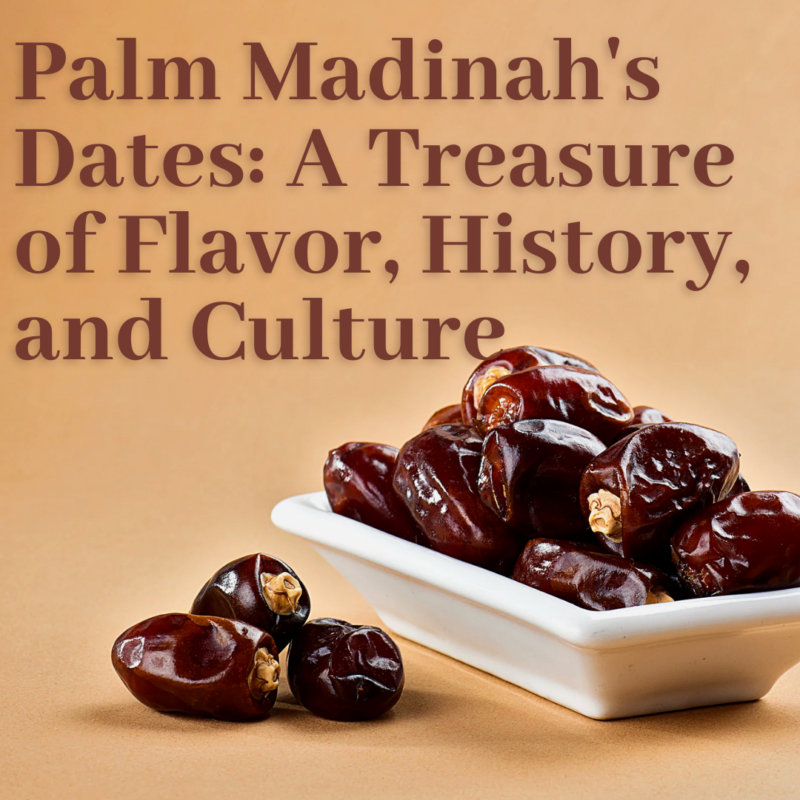In the heart of Saudi Arabia, amid the sprawling palm groves of Madinah, lies a tradition as old as time itself – the cultivation of dates. For centuries, dates have held a revered place in Middle Eastern culture, symbolizing abundance, hospitality, and blessings. As one of the world’s largest producers of dates, Saudi Arabia’s date harvest is not just a seasonal event; it’s a cultural celebration that honors centuries of tradition and heritage.
The Legacy of Date Cultivation
The history of date cultivation in Saudi Arabia dates back thousands of years, with archaeological evidence suggesting that dates were being cultivated in the region as early as 6000 BCE. The ancient Egyptians revered the date palm as the tree of life, and it played a central role in their religious rituals and daily life. Over the centuries, date cultivation spread across the Middle East, reaching its zenith in the fertile oases of Saudi Arabia.
Cultural Significance
In Saudi Arabian culture, dates are more than just a staple food; they are a symbol of hospitality, generosity, and tradition. Offering dates to guests is a time-honored custom, signifying welcome and respect. In fact, the Prophet Muhammad himself is said to have recommended the consumption of dates to break one’s fast during Ramadan, further solidifying their importance in Islamic tradition.
The Harvest Season
The date harvest in Saudi Arabia typically begins in late summer and continues into the fall, spanning several months. During this time, the palm groves of Madinah come alive with activity as farmers and workers labor tirelessly to harvest the ripe fruit. It’s a labor-intensive process that requires skill, patience, and precision. Each date is carefully handpicked to ensure optimal ripeness and quality, preserving the rich flavour and sweetness that dates are known for.
Rituals and Traditions
The date harvest is not just a practical endeavor; it’s also steeped in rituals and traditions that have been passed down through generations. From the ceremonial blessing of the palms to the communal feasts that follow the harvest, every aspect of the process is imbued with meaning and significance. Families and communities come together to celebrate the bounty of the land and give thanks for the blessings bestowed upon them.
Modern Innovation
While the tradition of date cultivation remains deeply rooted in history and heritage, modern technology and innovation have also played a significant role in shaping the industry. Today, Saudi Arabia boasts some of the most advanced agricultural practices in the world, including sophisticated irrigation systems, genetic research, and sustainable farming techniques. These advancements have helped increase yields, improve quality, and ensure the long-term viability of date cultivation in the region.
Palm Madinah: Preserving Tradition, Embracing Innovation
At the heart of Saudi Arabia’s date industry is Palm Madinah, a company dedicated to preserving tradition while embracing innovation. With a legacy spanning decades, Palm Madinah is committed to delivering the finest quality dates to customers around the world. From the lush palm groves of Madinah to the tables of homes and businesses worldwide, Palm Madinah dates are a testament to the rich history and cultural significance of date cultivation in Saudi Arabia.
The cultural significance of date cultivation in Saudi Arabia cannot be overstated. From ancient rituals to modern innovations, dates continue to play a central role in the lives of people across the region. As we celebrate the harvest season and reflect on the rich history and heritage of date cultivation, let us also look to the future with hope and gratitude, knowing that the legacy of dates will continue to endure for generations to come.
In the heart of Saudi Arabia, among the lush palm groves of Madinah, lies a tradition that echoes through the annals of time – the cultivation of dates. This ancient practice is not merely about agriculture; it’s a deeply ingrained part of the cultural fabric of the region, embodying centuries of tradition, heritage, and reverence. As we journey through the rich history of date cultivation in Saudi Arabia, we uncover a tapestry of rituals, customs, and beliefs that have shaped the lives of generations.
The Ancient Roots of Date Cultivation
The story of date cultivation in Saudi Arabia is as old as civilization itself. Archaeological evidence suggests that the date palm, known scientifically as Phoenix dactylifera, has been cultivated in the region for over 6,000 years. From the fertile valleys of the Arabian Peninsula to the oasis cities along ancient trade routes, dates have sustained communities and served as a symbol of resilience and prosperity in the harsh desert environment.
Cultural Significance and Symbolism
In Saudi Arabian culture, dates are more than just a nutritious fruit; they are imbued with deep cultural significance and symbolism. Offering dates to guests is a time-honored tradition, rooted in the principles of hospitality and generosity. The act of sharing dates is considered a gesture of goodwill and friendship, symbolizing the bond of kinship and community. In Islamic tradition, dates hold particular importance, as they are mentioned numerous times in the Quran and are believed to have been one of the Prophet Muhammad’s favorite foods.
The Harvest Season: A Time of Celebration
The date harvest season in Saudi Arabia is a time of celebration and festivity, as families and communities come together to reap the fruits of their labor. From late summer to early fall, the palm groves of Madinah are alive with activity as farmers and workers meticulously harvest the ripe fruit. The harvesting process is a labor-intensive endeavor, requiring skilled hands and keen eyes to select only the finest dates for consumption.
Rituals and Traditions: Honoring the Past, Embracing the Future
Throughout the date harvest season, various rituals and traditions are observed to honor the ancient heritage of date cultivation. Before the harvest begins, farmers perform a ceremonial blessing of the palms, seeking divine protection and guidance for a bountiful yield. After the harvest, communal feasts and gatherings are held to celebrate the abundance of the land and express gratitude for the blessings bestowed upon them.
Modern Innovations in Date Cultivation
While the traditions of date cultivation remain deeply rooted in history, modern innovations and technologies have revolutionized the industry, ensuring its continued prosperity and sustainability. Today, Saudi Arabia boasts some of the most advanced agricultural practices in the world, including precision irrigation systems, genetic research, and eco-friendly farming methods. These innovations have not only increased yields and improved quality but have also helped conserve water resources and minimize environmental impact.
Palm Madinah: A Legacy of Excellence
At the forefront of Saudi Arabia’s date industry is Palm Madinah, a company committed to preserving tradition while embracing innovation. With decades of experience and expertise, Palm Madinah is renowned for producing premium-quality dates that embody the rich flavors and cultural heritage of the region. From the iconic Medjool dates to the delicate Khudri variety, each date is meticulously handpicked and packaged to ensure the highest standards of quality and freshness.
Preserving a Timeless Tradition
The cultural significance of date cultivation in Saudi Arabia serves as a testament to the resilience and ingenuity of its people. As we reflect on the rich history and heritage of date cultivation, let us also look to the future with optimism and determination. Through the preservation of ancient traditions and the embrace of modern innovations, we can ensure that the legacy of dates will continue to thrive for generations to come, enriching the lives of all who partake in their timeless sweetness.








